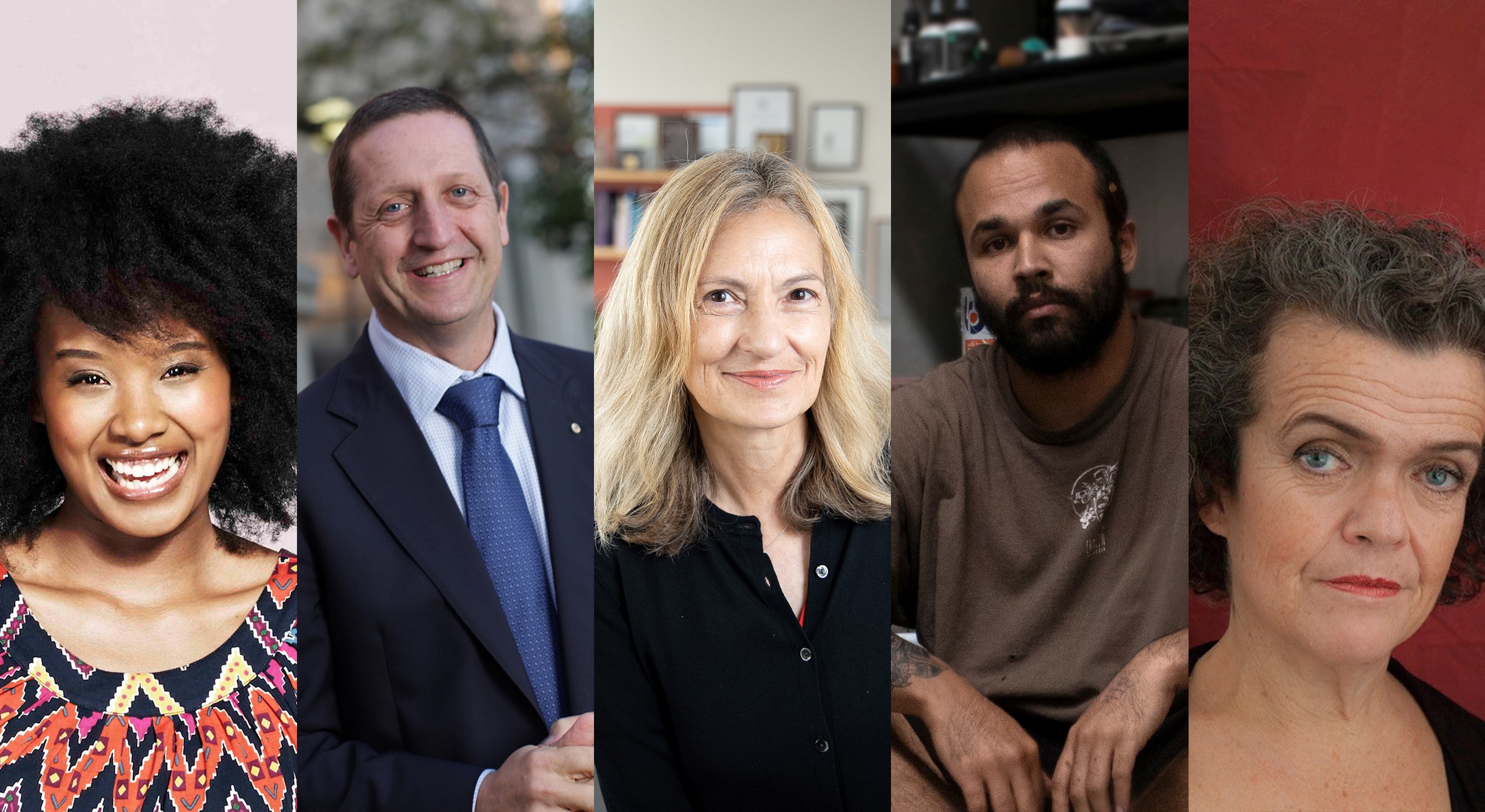
/ Frame of Mind: Mental Health and the Arts Interviews
Musician and queer activist Faustina Agolley will speak with an exciting line-up of mental health experts and artists.
The sessions will be recorded and posted with a transcript on the Frame of Mind website shortly after.
Speakers
Faustina Agolley
Faustina’s work includes hosting flagship music program Video Hits, The Voice and the Sydney Gay and Lesbian Mardi Gras. She made her stage debut with Sydney Theatre Company and Melbourne Theatre Company’s co-production of the Molière award-winning play, The Father alongside theatre luminary, John Bell and toured Australia and New Zealand as Oprah Winfrey’s resident DJ her ‘An Evening with Oprah Tour’. Faustina has written on queer issues and mental health for Women of Letters (Penguin), Huffington Post, Sunday Life, Queerstories and The Wheeler Centre Gala. Faustina’s story, Sam, explores loss, grief and her African identity, and is part of the first collection of African Australian stories in Australian Letters called Growing Up African in Australia. Faustina is a graduate of Media and Communications at The University of Melbourne and Media Studies at RMIT University.
Professor Ian Hickie AM
Professor Ian Hickie is Co-Director, Health and Policy at The University of Sydney’s Brain and Mind Centre. He has led major public health and health services developments in Australia, particularly focusing on early intervention for young people with depression, suicidal thoughts and behaviours and complex mood disorders. He is active in the development through codesign, implementation and continuous evaluation of new health information and personal monitoring technologies to drive highly-personalized and measurement-based care. In an essay for the Frame of Mind publication Ian stressed the importance of the arts for our ‘mental wealth’ and of supporting artists in the maintenance of their own mental health and wellbeing.
Professor Katherine Boydell
Katherine Boydell is a Professor of Mental Health at the Black Dog Institute. She heads the Black Dog Institute’s Arts-based Knowledge Translation (AKT) Lab, an initiative through which artists collaborate with researchers, service providers, health consumers, and carers. She is also Director of Knowledge Translation for the Sydney Partnership for Health Education Research and Enterprise (SPHERE). Her research program focuses on arts-based knowledge translation – exploring use of the arts in the research process to create and disseminate research. In an essay for the Frame of Mind publication Katherine explored the difficult terrain that artists traverse when they engage with themes of mental health challenges within their work.
Tyrown Waigana
Tyrown Waigana is a Wandandi Noongar (Aboriginal) and Ait Koedhal (Torres Strait Islander) multidisciplinary artist living in Perth. Using surreal humour and wry observations he creates works that explore the intersection between myths, legends and everyday life. His diverse output spans painting, sculpture, animation and graphic design, which combines colourful abstraction with pop culture and Indigenous art references. He has created designs for the Aboriginal Health Council of Western Australia, Australian National University, First Nations Justice Campaign and in 2020 he was the winner of the prestigious NAIDOC poster competition with his work ‘Shape of land’. In the same year he published his first comic book ‘The Rest Of Your Life’s Gonna Be Shit,’ and was presented with the 2020 NAIDOC award for Perth Artist of the year.
In June 2021, Tyrown was a panel member in the Edith Cowan University symposium Making Sense of the World Through Art produced as part of the Frame of Mind: Mental health and the arts Program. He also exhibited work in the exhibition Dark Side at There Is Gallery in Perth, which explored the ways artists grapple with issues of mental health within their work.
Dr Debra Keenahan
With a practice spanning both visual arts and psychology, Dr Debra Keenahan is uniquely positioned to reflect on the mental health challenges faced by artists. Her achondroplasia dwarfism informs her art, teaching and writing by focusing upon the personal and social impacts of disability. In her art practice Debra uses both 2D and 3D methods to represent disability aesthetics, which is the subject of her second PhD she is completing at UNSW Art & Design. This subject area is a constructive response to her earlier work in psychology on de- humanization. Debra has exhibited in both group and solo exhibitions and she has been the sole and co-author of a book, book chapters, articles and conference papers. Currently, Debra lectures at Western Sydney University in Humanitarian and Development Studies. She has been a consultant to the Human Rights and Equal Opportunity Commission on issues of Disability. In December 2021 her video artwork ‘Little Things Matter’ will be screened at the Museum of Contemporary Art Australia in the showcase ArtScreen 2021.